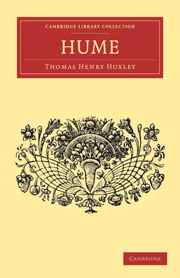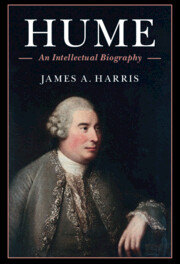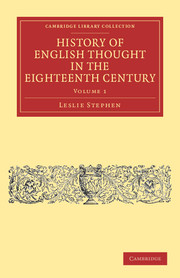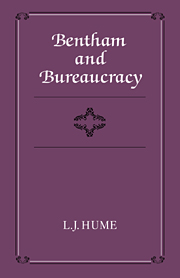Hume
What is philosophy about? According to the author of this work (published in the first series of 'English Men of Letters' in 1879) it is fundamentally the answer to the question: 'What can I know?' T. H. Huxley (1825–95), the distinguished English scientist and disciple of Darwin, succeeds in giving a clear and succinct account of the way in which Scottish philosopher David Hume (1711–56) answered this question. The book is divided into two parts: in the first, Huxley provides the reader with a sketch of Hume's life, but the main emphasis of the book is in Part 2, where by expounding Hume's views on the object of philosophy, consciousness, theology, language and free will, Huxley guides the reader towards an understanding of how Hume's philosophical principles can be regarded as a search for the ultimate element out of which all valid knowledge may be shown to emerge.
Product details
October 2011Paperback
9781108034777
222 pages
216 × 140 × 13 mm
0.29kg
Available
Table of Contents
- Part I. Hume's Life:
- 1. Early life: literary and political writings
- 2. Later years: the History of England
- Part II. Hume's Philosophy:
- 1. The object and scope of philosophy
- 2. The contents of the mind
- 3. The origin of the impressions
- 4. The classification and the nomenclature of mental operations
- 5. The mental phenomena of animals
- 6. Language - propositions concerning necessary truths
- 7. The order of nature: miracles
- 8. Theism: evolution of theology
- 9. The soul: the doctrine of immortality
- 10. Volition: liberty and necessity
- 11. The principles of morals.





